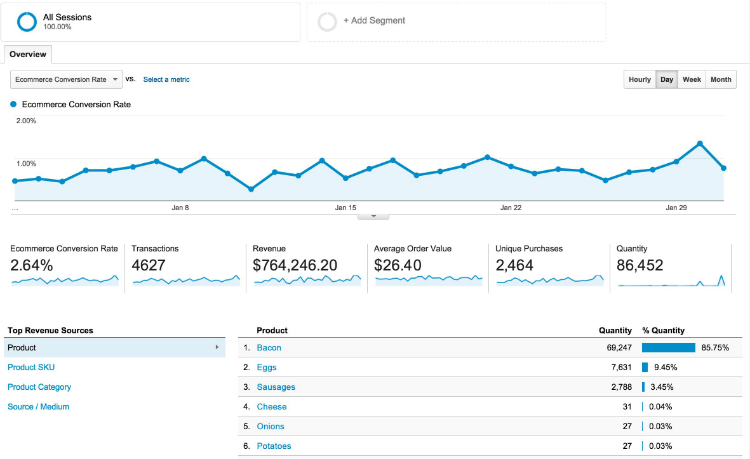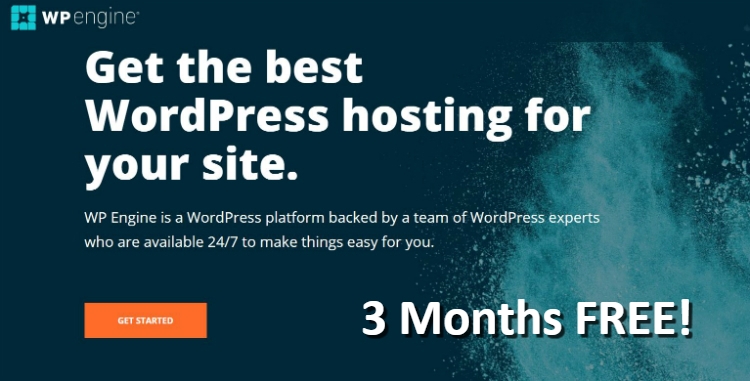The SEO world is chock full of opportunities as well as challenges. A less experienced or skilled marketer or affiliate marketer could easily fall victim to the many pitfalls along the way.
For many affiliate marketers, the ultimate goal is to increase online traffic into their website. But it would be short-sighted to consider every rise in traffic as a success. Not every visitor that ends up on the landing page had the initial intent of getting there. In fact, some of the strategies some of these marketers employ are downright misleading and could really harm not only the business but also the brand’s reputation.
Below are some common SEO mistakes that affiliates very commonly make.
1. Not using analytics, Google Analytics specifically
It’s quite common to hear buzzwords like SEO but it can be tough for affiliates to know if they’re investing money and time into an SEO that’s worth it. How do we know if the SEO adds value and profit to the business?

Most businesses follow the route of hiring a full-time digital marketer to ensure that the SEO strategy they use offers any sort of value to the business. Or you’re thinking of testing the value of SEO using the many tools available in the market. The problem comes down to cost and performance – paid tools are costly and “freemium” tools lock you out of the most important features.
But this doesn’t have to be the case, and this is where Google Analytics enters.
Google Analytics is a free service that helps businesses get the most value from their business website which is why many experts consider it the most important tool for an effective SEO strategy. The insights and data taken from Google Analytics can help businesses improve their marketing, better serve their audience, and get more customers.
Overall benefits of using Google Analytics
Cost
An obvious advantage that Google Analytics brings is it’s completely free. There’s no need for you to subscribe or even give your credit card information to use the tool. What’s needed is simply an active Gmail account and installing a tracking code on the website and you’re all set.
Data Visualization
Data only serves any use if you can make any sense of it. The data visualization feature on Google Analytics offer is the second most common reason why so many affiliates use it. The platform presents data using lists, charts, pie charts, graphs, and spreadsheets.
Reporting
Although data visualization is very important in order to make sense of data, reporting gives you the ability to draw any important conclusions from it. Comparing metrics gathered from the data means an easier time identifying causes and correlations.
2. Not creating original content

As affiliates, it can be very easy to fall prey to laziness, especially when it comes to creating content for websites. They think simply copying a blog post or video content and tweaking it a little bit will be enough and there won’t be any consequences. It’s surprising how many marketers and affiliates fall prey to this kind of thinking.
The main goal of content is to provide content to your audience that they can relate to. They don’t want to be told to do something; they want to be included in the conversation. Sadly, a lot of content floating online falls under the former category and when you duplicate this type of content, your audience will also have a harder time connecting with you.
Improves search ranking
Original content doesn’t just allow you to relate more effectively to your target audience, it can also benefit your search ranking as well as your link building efforts. There are virtually millions of content available online with thousands more created every day. Creating an original, unique, and fresh content will make it easier for search engines to crawl your site and rank it higher.
Helps in link building
If you’re contributing to another site, you won’t be able to earn reputable backlinks if your content is ripped off from others. High domain authority websites only accept relevant, informative, and unique posts.
Increase credibility
A high-quality and unique content about the topics that people in your industry very rarely talks about could put you at an advantage since this type of content will demonstrate your knowledge about the industry. This will only help increase your credibility. Content that shows your skill and expertise signals to people that you have a very good grasp of the trends that’s currently happening in the industry.
3. Not optimized for mobile

The increasing number of people accessing the internet using their smartphones and similar mobile devices led to Google switching their focus to mobile-first indexing. This means site owners, marketers, and affiliates need to make their websites more mobile-friendly.
If your website is difficult to access on mobile, it’s easy to think that you’re turning many users away without even realizing it. This can negatively affect the growth of your business. You need to evaluate the different elements of the site’s structure, design, and speed, taking into account the various load times and screen sizes if you want to optimize it for mobile.
Mobile search is increasing
Mobile search is already taking over the majority of online searches that people are doing. And this trend is not showing any signs of stopping any time soon. Even in paid advertising, mobile is still dominating its desktop counterparts.
Content on mobile is related to SERP visibility
With Google’s adamant shift towards a more mobile-friendly paradigm, it paved the way for sites to prioritize their mobile content in order to rank higher. And while it’s still very important for marketers and affiliates to create content aimed at boosting revenue, it’s even more important that those contents are optimized for mobile search, lest the site receives sparse and minimal traffic.
Mobile search improves sales
Google went in-depth understanding of the buying behaviors of mobile search users and they found that over a span of two years:
- searches for product reviews increase by as much as 35%;
- videos with titles that include the word “review” received a cumulative watch time of about 50,000 years on mobile, and;
- searches with the word “best” have increased by 80%.
This and the fact that over 40% of people say they much prefer to do their shopping on mobile suggests how much more impactful mobile is going to be in the growth of businesses in the coming years.
4. Using free web hosting

There is a tone of companies today that offer various opportunities for creating a website for free. In fact, almost all webmasters and web owners, at some point, had their beginnings using free web hosting services. And you can’t really blame people for doing this. Starting a website without having to shell out cash is massively attractive.
While free web hosting services can provide a lot of opportunities for beginners, it has a lot more drawbacks once the site gets a little more traction.
Difficult for monetization
A lot of these free web hosts don’t allow you to put any ads on your page, or add an affiliate link. What’s more, they will even stick ads on all the available premium space on your site without considering if the ad goes well with the content of the page. And worse, many of these providers will sell the addresses of the website to spammers in order to earn money with your permission. This is why you sometimes see ads on fake drugs, porno sites, gambling, and online scams pop up on some websites.
Bad design
Another disadvantage of using a free web hosting service is the design is very limited. I’m sure you’ve come across a number of these sites that make you wonder, “Did the creator even had any creativity when they built this site?” The site owner is not entirely to blame. Although they might have a vision of their page but the tools to realize that vision is absent in the host.
Forgetful domain name
It is infinitely better for your brand if customers are able to recognize it when they visit your website. But this isn’t the case when you use a free service. Unless you’ve paid for a custom domain name, you have zero control on what URL you’ll get. You also don’t have your own branded email. Looking at a URL like smallbusinessenterprise.freewebhost.com is massively unprofessional.
5. Ignoring page speed

Page speed has been an important ranking factor for quite some time now. Its importance in determining a site’s search engine results page position continues to grow. But really, we shouldn’t be surprised when a metric that determines how quickly someone sees a content they’re searching for becomes a crucial indicator on a site’s user experience.
Although they sound similar, page speed is different from site speed. Site speed is the average of a few different sample pages on a website. Page speed, however, is how long a person will have to wait before they can start consuming a single page.
Why it matters
Page speed is crucial to users because the faster a page loads, the better the overall user experience becomes. In a recent infographic published, a page that takes longer than 3 seconds to load will see about a quarter of site visitors clicking away.
The importance of page speed isn’t exclusive to one channel as well. Those who frequently use mobile to access the internet expect speed as well.
And, of course, page speed is everything when it comes to search engine optimization.
In 2010, Google announced that it would include page speed as one of the factors when search indexing. And again, in 2017, the tech giant gave page speed even more important when it announced it would now integrate mobile site speed when ranking sites.
All these efforts emphasize to both users and webmasters that high-quality user experience in consuming content is and should be a priority.

Speed metrics
There is a lot of complexity when talking about page speed. Overcoming the many issues involved means understanding the different metrics that are being measured. These metrics include:
- Load time
- Page size
- Time to first byte
- Round trip time
Factors the bring down the speed
With these metrics in mind, you certainly want to do everything it takes to increase page speed. To do so, you have to explore the things on your site that bogs it down.
First, a site that’s heavy with images, especially high-quality images, will definitely weigh a page down, slowing the page speed. Make sure that you optimize the images you use.
Another problem you might face is the web page having too many large files that have to be downloaded. Similarly, rendering a lot of JavaScript scripts will also negatively impact your page’s load speed.
6. Not being optimized for local search

Knowing how to do local SEO is something that has always been a priority for many business owners, especially now that mobile device usage and a shift in buying habits in consumers made it more clear how important it is to prioritize local search. Ensuring your site is optimized to attract organic search traffic is crucial for all local businesses.
For smaller businesses and local brands, being able to tap into the local market is a great opportunity to even out the playing field against multinational brands like Walmart, Amazon, and eBay.
When you plant how to optimize the business to include local SEO, focusing your attention on areas like on-site and off-site is tantamount.
On-site SEO involves everything that takes place on your website which includes page content, page loading time, page design, and keyword use. On the other hand, off-site SEO covers processes away from the domain. Things like the number of links you have, working with an influencer marketing agency, how many reviews you receive, and the online citations you created.
Important ranking factors you should consider in optimizing for local search include:
- On-page Optimization – Take the time to make sure that the content on your website also includes information relevant to the business such as name, address, and phone number. This kind of information should be visible in both the header and the footer.
- Inbound Links – Local search also relies on the quantity and quality of inbound links that direct to local businesses’ sites from external sites.
- Google My Business – Local businesses should have web pages that have optimized and accurate categories as well as relevant keywords in their business descriptions.
- User behavioral usage – Together with mobile usage, behavioral usage should be a top consideration for local brands. Factors include click-through rates, check-ins, and calls to a business from users.
- Local influencer marketing – By taping micro-influencers within a given geographic location, a business is better able to increase its visibility. This is where a good influencer marketing agency plays an important role.
7. Not using the right keywords

When it comes to SEO, a massive mistake any affiliate can commit is not using the right keywords, or not optimizing it properly. An inexperienced marketer can easily fall into some of the optimization trappings of:
- using global keywords when their products and services are aimed at local customers;
- using generic keywords in the hopes of attracting customers that have very little interest in what they have to offer;
- using keywords that only bring visitors that are only looking for free information instead of actually purchasing something, and;
- using broad keywords that competitors are also using.
It’s always best to be as specific as possible when using keywords. Using generic keywords might have the effect of bringing in lots of traffic in the short term but for a business looking to grow far into the future, that strategy isn’t sustainable. You want to bring in customers that have the highest chance of conversion and not merely looking around or searching for free information. It’s better to focus on more specific phrases since it brings in the intended audience who are more likely to purchase one of your products or avail of your services.
For example, a graphic artist looking to reign-in more clients won’t simply use keywords like “graphic design” as a keyword in the beginning. They would get better results using a more specific keyword phrasing like “graphic design for New York startups.” As your business grows and matures, you can aim for more nuanced and unique keywords to really attract your target audience.
Back in 2013, the validity of keywords was put to the test when Google modified its algorithm. The search giant used Hummingbird to help it better understand the intent in each search which proved useful for complex searches. Then came the RankBrain, an AI-driven ranking factor to better improve its ability to interpret queries.
It wasn’t until in 2019 when BERT came into the picture that Google’s ability to effectively perform a wide range of linguistic calculations really matured. The algorithm didn’t make keywords irrelevant. On the contrary, it made the search engine smarter in interpreting every single word used in a search to pull up the most relevant results.
So there you have it, those are the top 7 common SEO mistakes that affiliate marketers commit. There are certainly others but these ones are those that are quite avoidable but despite the warnings, many still fall victim to.
About the Author:
Eliza Brooks is a passionate blogger and informative content writer who loves to write about social media marketing, seo tips, and web designs. She is currently working with adfluencer.de, Germany’s leading agency for influencer marketing.



